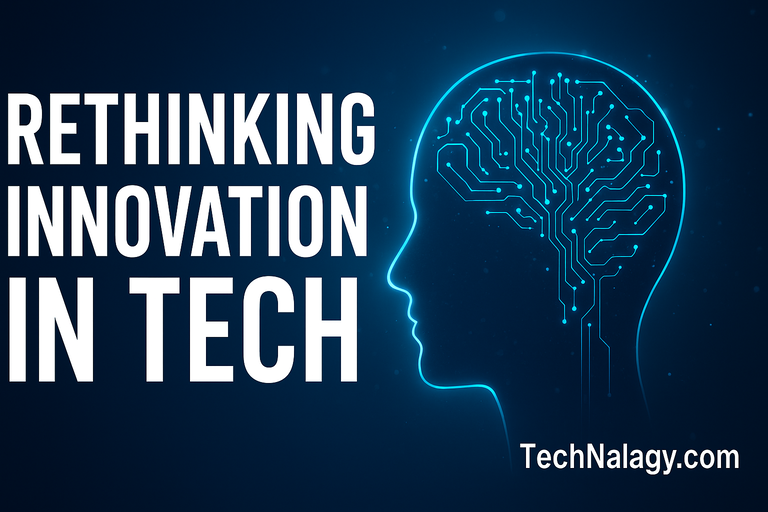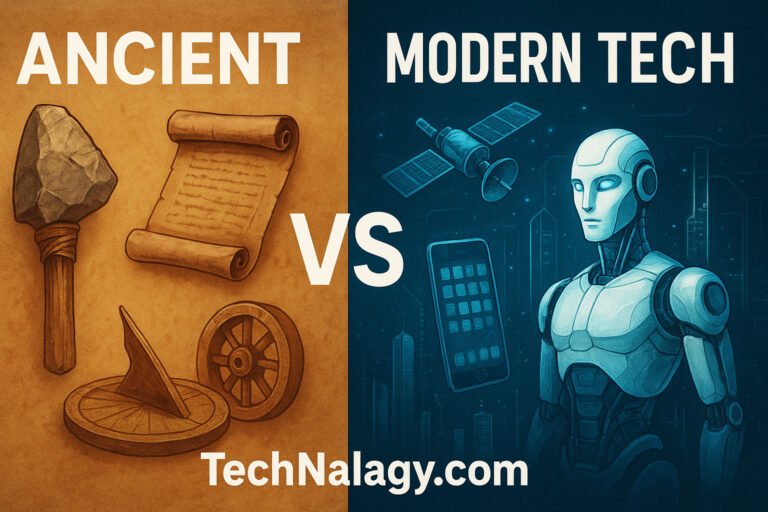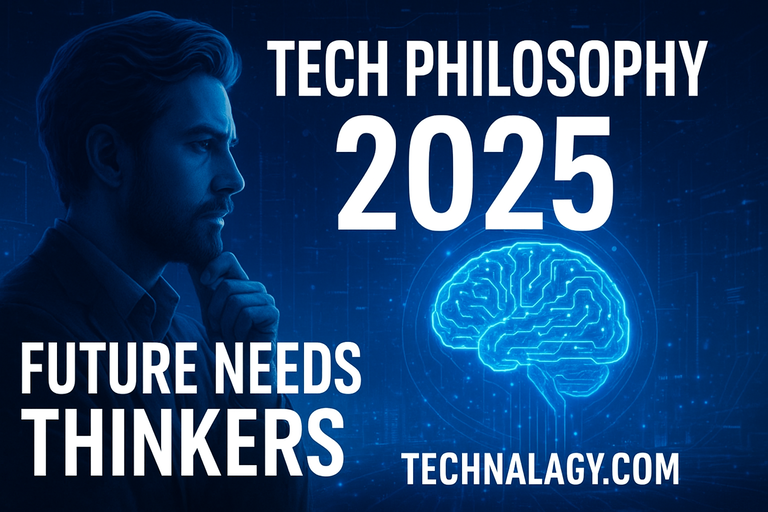Why the Tech World Needs a Pause Button: Rethinking Innovation in an Age of Acceleration
The Race No One Questioned
Every sunrise brings a new headline promising the next big thing — another breakthrough in AI, another gadget upgrade, another app update that claims to “change everything.” Technology is moving at a speed humanity can barely comprehend, yet almost no one dares to ask the most uncomfortable question of all: should we slow down?
For decades, the tech industry’s mantra has been simple — move fast and break things. But what happens when everything we value starts to break too? In 2025, Rethinking Innovation in Tech isn’t just a trendy concept; it’s a survival imperative. The endless chase for the “next version” has blurred the line between progress and exhaustion.
We’ve entered an age where acceleration itself is celebrated — not the outcomes it produces. Startups are pressured to disrupt before they even stabilize. Engineers design with speed as the KPI. And users? They’ve become unwilling beta testers in an infinite loop of half-finished innovation.
It’s time to press pause — not to stop progress, but to remember what progress is for.
Table of Contents
The Age of Acceleration — Why Tech Never Sleeps
Technology has never moved faster than it does today. Artificial intelligence models evolve weekly, new devices launch quarterly, and entire industries transform before employees can adapt. The “age of acceleration” is both inspiring and terrifying — a constant sprint that rewards immediacy and punishes reflection.
The irony is that innovation, once synonymous with betterment, is now increasingly linked with burnout. Companies fear irrelevance more than inefficiency. Updates are shipped faster than they can be tested. Products are marketed as revolutionary before they even prove useful.
In this environment, Rethinking Innovation in Tech means asking whether “faster” always equals “better.” The truth is, innovation without intention can lead to noise instead of progress. A culture obsessed with acceleration eventually mistakes activity for advancement.
Innovation Fatigue — When Progress Becomes Pressure
For every groundbreaking discovery, there’s an invisible cost — human exhaustion, ethical oversight, and digital pollution. “Innovation fatigue” has quietly become one of the industry’s most pervasive issues. It’s not just a mental phenomenon; it’s a systemic one.
Users Feel It Too
Constant updates, algorithmic changes, and new “must-have” features have created a culture of fatigue. People no longer feel empowered by technology — they feel trapped in its endless upgrade cycle. Phones, apps, and operating systems are outdated almost the moment they’re purchased. The excitement of novelty has been replaced by anxiety of obsolescence.
Companies Feel It Even More
Inside tech firms, employees face relentless pressure to innovate on demand. Product teams sprint endlessly, not because there’s a problem to solve, but because the market expects disruption. It’s a paradox: in chasing innovation, companies often destroy the very creativity that made them innovative.
Society Bears the Consequence
Innovation fatigue is also societal. Technologies are being deployed faster than laws, ethics, or cultures can respond. The result is a digital environment full of power without pause — and consequences without accountability.
If Rethinking Innovation in Tech is the solution, then it starts by redefining innovation not as acceleration, but as alignment — progress that aligns with human needs, not corporate timelines.
Rethinking Innovation in Tech — Finding Meaning Over Momentum
To rethink innovation is to reclaim its meaning. Real innovation should improve lives, not just impress investors. It should solve actual problems, not manufacture artificial needs.
Rethinking Innovation in Tech isn’t anti-progress — it’s pro-purpose. It’s about pausing to ask, “Why are we building this?” before “How fast can we launch it?”
Some companies are beginning to get it right. Brands that prioritize privacy, longevity, or sustainability over raw speed are seeing long-term trust that no viral product launch can buy. Fairphone, for example, builds modular devices designed to last years — not months. Apple has begun emphasizing privacy as a feature, reframing innovation as protection rather than disruption.
In the next decade, slowing down might be the ultimate form of progress.
Learning from Responsible Innovators
The tech world doesn’t need to stop innovating — it needs to innovate responsibly. That starts with remembering that technology is a tool, not a destiny. True progress comes from awareness, ethics, and humility.
As explored in why the future of AI ethics depends on human imperfection, technological progress without moral reflection can lead to unintended harm. From biased algorithms to exploitative data practices, we’ve already seen how innovation detached from ethics can deepen inequality and erode trust.
Responsible innovation means putting human imperfection back into the process — recognizing that not every breakthrough should be rushed, and not every idea should scale globally overnight.
Sustainability in Action — The Green AI Movement
The environmental cost of constant innovation is staggering. Training a single large AI model can emit as much carbon as five cars over their lifetimes. The servers powering our digital lives consume more electricity than some nations.
But change is possible. A great example is the rise of Green AI in 2025, where researchers are finding ways to cut down the massive energy cost of machine learning. Companies are experimenting with low-power chips, carbon-efficient algorithms, and renewable-powered data centers.
This is what Rethinking Innovation in Tech looks like in practice — innovation that doesn’t just advance capability, but also sustainability. Progress that respects both users and the planet isn’t slower; it’s smarter.
Beyond Data — The Human Element in Innovation
The tech world’s obsession with data has blinded it to a simple truth: numbers don’t create meaning — people do. Every decision algorithmically optimized risks losing something essentially human — intuition, empathy, and creativity.
As noted in Beyond the Algorithm: Why Intuition Still Beats Data in the Age of AI, innovation guided by intuition and empathy often achieves what data alone cannot. The future of progress lies not in replacing human judgment, but enhancing it.
Innovation without empathy creates tools that work but don’t connect. To rethink innovation is to restore that connection — to design not for screens, but for souls.
The Rise of the “Slow Tech” Philosophy
A quiet movement has been gaining momentum — Slow Tech. Inspired by the Slow Food movement of the 1980s, Slow Tech advocates deliberate, ethical, and sustainable creation of technology. It’s not about resisting progress; it’s about redefining its pace and purpose.
Slow Tech emphasizes:
- Fewer releases, deeper impact.
Products designed to last, not to trend. - Design for wellbeing, not addiction.
Interfaces that respect user attention. - Transparency over manipulation.
Honest algorithms and open-source accountability.
Framework laptops, Fairphone, and Humane AI Pin are modern embodiments of this philosophy — companies daring to move thoughtfully in an industry obsessed with speed.
By embracing Rethinking Innovation in Tech, the Slow Tech movement challenges the myth that innovation must always accelerate. Sometimes, slowing down is the most radical act.
How Slow Tech Could Redefine the Future
Imagine a world where software updates happen once a year — but each update truly improves lives. Where gadgets are built to be repaired, not replaced. Where algorithms are designed for fairness, not addiction.
Slow innovation doesn’t mean stagnation. It means focus. It means depth. It means rediscovering the craftsmanship that technology once had before speed became the ultimate measure of success.
Perhaps the next tech revolution won’t be powered by quantum computing or neural interfaces — but by patience.
A More Human Future — Designing Technology That Serves, Not Consumes
In the rush to innovate, we’ve built tools that consume our attention faster than we can control them. Social platforms reward outrage, notifications hijack focus, and AI systems optimize engagement — not wellbeing.
If we are truly Rethinking Innovation in Tech, then technology must once again serve human flourishing, not addiction. That means designing with empathy, building for rest as much as productivity, and respecting the limits of human cognition.
A “pause button” doesn’t mean turning off technology; it means turning toward humanity.
The Role of Governments, Businesses, and Users
Governments
They must establish ethical frameworks that prevent reckless innovation — laws that prioritize privacy, sustainability, and accountability. Regulation shouldn’t slow innovation; it should make it meaningful.
Businesses
Corporate leaders must shift from “growth at all costs” to “growth with conscience.” Transparency, fair labor practices, and sustainability metrics should become innovation KPIs.
Users
We, too, have agency. Choosing mindful tech, disabling distractions, and supporting sustainable brands sends a clear message: speed isn’t everything. The demand for ethical technology starts with personal awareness.
Collectively, we can transform innovation into something humane — a shared journey, not a race.
Learning from History — When Pausing Sparked Progress
History is filled with moments where pausing changed everything. The safety standards of aviation, the privacy protocols of the web, the ethics of biotechnology — each emerged not from acceleration, but from reflection after mistakes.
Progress isn’t linear; it’s rhythmic. Humanity’s greatest leaps often come after its greatest pauses. The internet itself, once chaotic and unregulated, evolved only after people stopped to rethink its direction.
That’s what the tech world needs now — a collective breath before the next sprint.
The Business Case for Slower Innovation
It might sound counterintuitive, but slowing innovation can actually increase success. Companies that prioritize quality, purpose, and ethics tend to create stronger, longer-lasting brands.
According to research from Harvard Business Review, organizations that practice deliberate innovation strategies outperform those chasing short-term product cycles. Sustainable design not only reduces waste but builds consumer trust — the most valuable currency in the modern economy.
By pressing pause, tech companies don’t lose momentum; they gain direction.
Conclusion — Time to Press Pause
For too long, technology has raced ahead without looking back. The result is a world full of dazzling tools but uncertain purpose. The next great innovation may not be another device, algorithm, or update — it may be a cultural shift toward reflection.
Rethinking Innovation in Tech means reimagining progress itself. It means valuing meaning over momentum, sustainability over speed, and humanity over hype.
Maybe the most revolutionary thing the tech world can do next isn’t to move faster — but to finally press pause.

Kamran Khatri is the founder of technalagy.com, where he shares insights on AI, future tech, gadgets, smart homes, and the latest tech news. Passionate about making innovation simple and accessible, he writes guides, reviews, and opinions that help readers stay ahead in the digital world.







